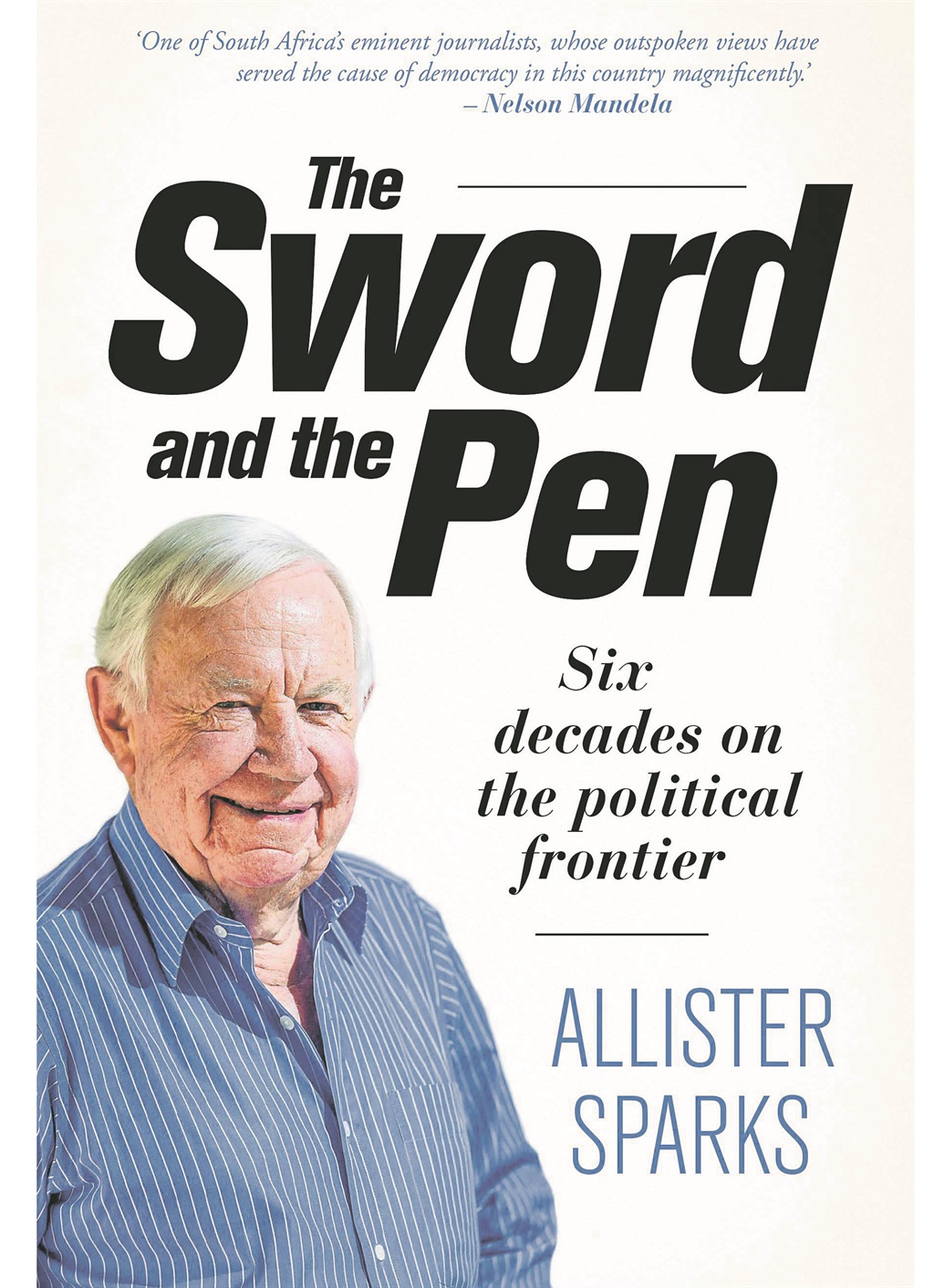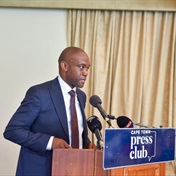
The Sword and the Pen: Six Decades on the Political Frontier by Allister Sparks
Jonathan Ball Publishers
608 pages
R241 at takealot.com
....-
Contained within my copy of veteran journalist Allister Sparks’ memoir, The Sword and the Pen, was a leaflet from Jonathan Ball Publishers, providing a contact number for journalists who wanted to request an interview with the author.
I put the leaflet aside, promising myself that I would do just that once I had finished the book.
Time passed, and although I voraciously consumed the 608 lucidly written pages, I never did get to that interview.
This week, we learnt that Sparks had died at the age of 83. And so it goes, as Kurt Vonnegut would say.
Sparks was a giant in journalism, and hugely intelligent.
He was a Nieman Fellow at Harvard University and possessed an uncanny ability to give clarity and perspective on current events, often predicting political trends.
He is best known as editor of the Rand Daily Mail in the late 1970s, a robustly anti-apartheid newspaper that would spawn today’s Mail & Guardian.
But he was also on the forefront of major political events, interviewing everyone from Hendrik Verwoerd to Thabo Mbeki and Nelson Mandela.
The Sword and the Pen starts off with a bang, establishing the history of the Eastern Cape frontier – where Sparks grew up – with a description of events during the bloody 100-year War of Resistance by the Xhosa against the Boers and Brits.
One of these events was the murder of Chief Hintsa, in which a certain Sir Harry Smith (yes, the one the town is named after) was involved. It’s an event that Sparks describes as “one of the most shameful acts of the colonial period”.
War had broken out again between the white frontiersman and the Gcaleka and Rharhabe tribes, and the region’s governor, Sir Benjamin D’Urban, invited Hintsa to the British camp to discuss the situation, assuring his safety.
When Hintsa arrived, Sir Benjamin started reading out a list of charges, accusing the king of failing to prevent his tribes from attacking the colonists and of generally showing ingratitude.
He demanded Hinsta pay 50 000 head of cattle and 1 000 horses as compensation.
When Hintsa refused, he was told he was under arrest until Sir Benjamin received a ransom from the Xhosa.
The next day, Sir Benjamin rode out with his chief of staff, Sir Harry, and the captive chief, looking to bring back the ransom.
Hintsa suddenly broke free and Smith gave chase. Once he was close enough, Sir Harry grabbed the king by the throat and flung him off his horse.
Hintsa managed to scramble to some bushes beside a river, but a trooper called George Southey spotted the king.
“He [Hintsa] called out several times in isiXhosa: ‘Mercy!’ Southey, who spoke the language fluently, must have heard him, but he took aim and fired, shattering Hintsa’s head.
"Other members of Smith’s posse rode up and two of them cut off Hintsa’s ears (earlier, Sir Harry had told his men he would buy a round of drinks for any man who could bring him a Xhosa chief’s ears). One of the medics in the posse tried to prize out some of Hintsa’s teeth with his knife to keep as souvenirs.
"Sir Harry sent some of the chief’s bracelets to his wife to add to his collection of memorabilia.”
And so Sparks establishes his memoir, a tale of being an observer in a country whose inhabitants would continue fighting to this day.
From his childhood to his high school career to his first stint as a junior reporter at a local paper in Queenstown, Sparks’ memoir is written in the style of all good journalism – concisely, simply and evocatively.
We come to learn of his travels to Britain, his early career in Harare, and how he came to be at the helm of the Rand Daily Mail.
During his editorship, the paper would expose one of the apartheid government’s biggest scandals: Muldergate.
Also known as the Information Scandal, it revealed how the government was using state resources to fund a propaganda campaign to boost its image overseas.
In his later years, Sparks continued to write for various publications and founded the Institute for the Advancement of Journalism.
The Sword and the Pen is not only the story of a highly successful journalist’s astounding career, but a look into a life fully lived.
And although I never got to speak to the man himself, his book gave me a glimpse into his astounding legacy.




 Publications
Publications
 Partners
Partners























